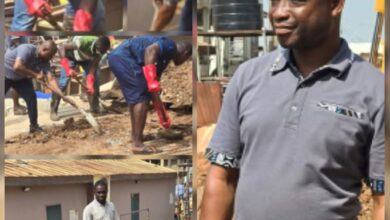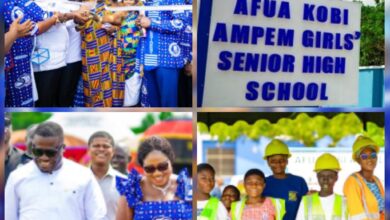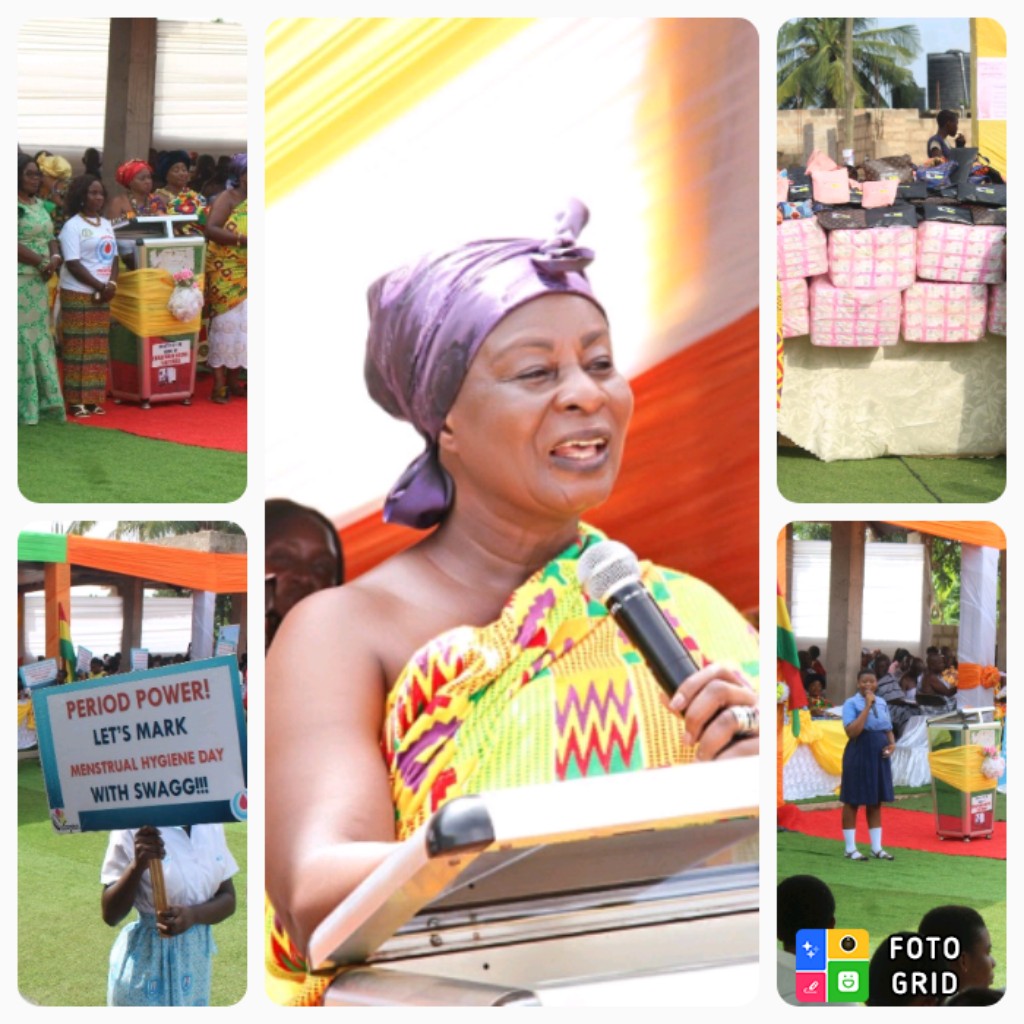
Share this
A/R:Amnesty International Ghana Donates Sanitary Pads and Vanity Kits
in support of Menstrual Hygiene Day Commemoration
AMNESTY INTERNATIONAL Ghana has donated over 1500 packets of sanitary pads and 200 Vanity Kits to school children in some selected communities in the Atwima Kwanwoma district of Ashanti.
The gesture which was done recently during the commemoration of the Menstruation Hygiene Day (MHD) held at Kantinkyiren, a community in the Atwima Kwanwoma District was to alleviate the distress some girls go through during their menstruation periods.
Menstrual Hygiene Day is observed worldwide on 28th May each year. It is a day set aside to raise awareness about the difficulties women and girls experience during menstruation. The day also offers an opportunity to actively advocate for the integration of menstrual hygiene management (MHM) into global, national and local policies and programs. Menstrual hygiene management can be particularly challenging for girls and women in developing countries, where clean water and toilet facilities are often inadequate.
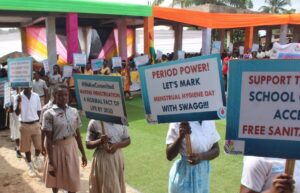
In her speech before the presentation, Stephany Abra Boateng, the Growth and Mobilisation Coordinator of Amnesty International Ghana, stated that access to affordable and effective menstrual products is a fundamental human right. This notwithstanding, she added that it is another barrier to proper Menstrual hygiene management in Ghana in which many girls and women, especially in rural and low-income areas, lack access to sanitary products, which has led to using unhygienic alternatives. “It is crucial to ensure that everyone has access to safe menstrual products and the facilities needed to manage their periods with dignity. To achieve this, we will need traditional leaders, communities, schools, civil society organizations and government to come together in advocacy for this fundamental human right to be fulfilled and respected,” she opined.
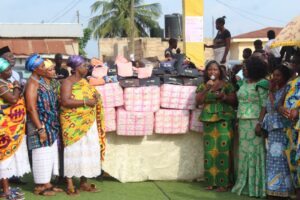
“We need to provide education on the subject and help provide the resources needed. It is part of this mission that Amnesty International Ghana engages in Human Rights Education on Menstrual Hygiene Management, period stigma and period poverty,” she stressed.
According to Madam Abra Boateng MHD was crucial because menstruation, a natural biological process, is often shrouded in stigma and misinformation.
She expressed worry over how many girls and women face significant challenges in managing their menstrual health with dignity.

These challenges she elucidated were not just medical but are deeply rooted in social, cultural, and economic factors. “Menstruation is a normal and healthy part of life for millions of girls and women around the world,” the Growth and Mobilisation Coordinator of Amnesty International Ghana reiterated.
Proper menstrual hygiene is essential for maintaining health and well-being. It involves using clean menstrual products, having access to safe and private spaces for changing and cleaning, and understanding how to manage periods safely. Good menstrual hygiene helps prevent infections, improves reproductive health, and ensures that women and girls can participate fully in school, work, and other activities.
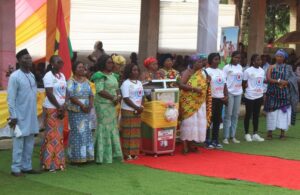
Madam Abra Boateng called on the government of Ghana to take the needed steps to ensure that the fundamental rights of Ghanaian girls and women were realized, promoted and protected.
She also pressed on the parliament of Ghana to treat with urgency the consideration of the Private member bills; the Customs (Amendment) (No.2) Bill, 2023 and the Value Added Tax (Amendment) (No.2), 2023 with them being tabled in Parliament soon and passed into law in the shortest possible time.
These bills she expounded seek to make sanitary products accessible and affordable for all girls and women in Ghana by bringing the 20% import duty on menstrual products to 0% and the 15% VAT import tax to 0%.

Nana Hemaa Adjoa Awindor, the Executive Director of Obaapa Development Foundation (ODF) who received the items on behalf of her organisation, commended Amnesty International Ghana for the gesture. She implored government and other relevant stakeholders to consider supporting the Sanitary Pad Bank Project (Being promoted by ODF and Ghana Education Service) by equipping schools with free sanitary pads to ensure female students do not miss classes to enable them compete with their male colleagues.


